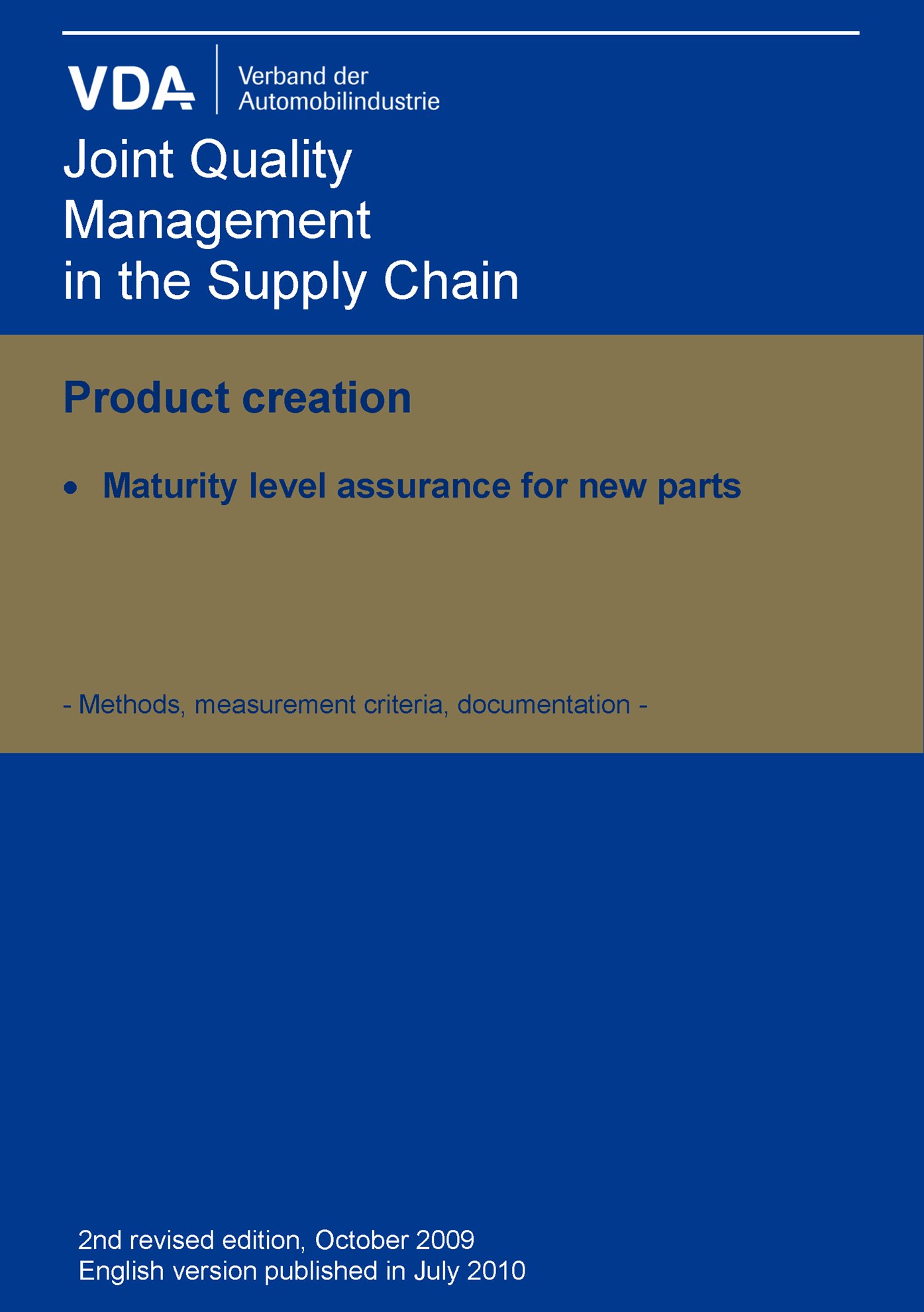We need your consent to use the individual data so that you can see information about your interests, among other things. Click "OK" to give your consent.

VDA Product creation - Maturity Level Assurance for new Parts - Methods, measurement criteria, documentation - 2nd revised edition, Oct. 2009 English version published in July 2010
VDA Product creation - Maturity Level Assurance for new Parts - Methods, measurement criteria, documentation - 2nd revised edition, Oct. 2009 English version published in July 2010
Translate name
PUBLICATION published on 1.1.2010
| Availability | Sold out |
| Price | ON REQUEST excl. VAT |
| ON REQUEST |
Product information:
Designation: VDA Product creation - Maturity Level Assurance for new Parts - Methods, measurement criteria, documentation - 2nd revised edition, Oct. 2009 English version published in July 2010
Approximate weight : 300 g (0.66 lbs)
Publication date: 1.1.2010
Country: German publication
*) If the goods is not available in stock and must be ordered at the publisher, the actual shipping and handling costs will be added. We will inform you about the details based on your request sent to info@normservis.cz, eventually dialing +420 566 621 759.
Annotation of standard text:
Short description to VDA Volume “Maturity Level Assurance for new Parts”
This present volume is a revision of the first issue, dated November 2006. The revision was carried out as the result of feedback regarding the potential for standardisation, generated from pilot projects and training carried out between suppliers and OEMs.
The most significant changes and adaptations which have been made are:
The introduction of an additional maturity level (ML5): "Parts from production tools and production facilities are available" (resulting in levels of ML0 to ML7)
Revision of measurement criteria, including maturity level indicators (ML0-7) and synchronisation with VDA 6.3 (new)
Directing the measurement criteria toward the validation of product and process
Set of measurement criteria are now a valid standard, replacing OEM-specific maturity level methods, and apply to all new parts
Differentiated use of maturity level assurances for parts classified as A, B and C (prioritized) risks.
This publication is a guideline for companies in the automotive industry in implementing maturity level methodology in the validation of the products they receive from their suppliers. It may also be regarded as a requirement in a customer-supplier relationship (included, for example, in purchasing conditions, requirements specifications and project-specific requirements).
Contents
1
Preface
2
Objective, purpose and scope of the study
2. 1
Objective and purpose
2.2
Scope of the study
2.2.1
Risk classification (prioritizing)
2.2.2
Applying maturity level assurance depending on risk classification
2.3
Applying maturity level assurance in the supply chain
3
Contents of maturity levels
3. 1
Phases
3.2
Pre-Requisite
3.3
Start
3.4
Control
3.4.1
Preparation
3.4.2
Assessment
3.4.3
Carrying out maturity level assurance depending on the risk classification (prioritization)
3.4.4
Implementation
3.5
Status report covering maturity level, corrective actions and escalation
3.5.1
Maturity level status report
3.5.2
Escalation
4
Communication in the supply chain
4.1
Forms of communication
4.1.1
Exchange of information at "Round Table" meetings ("A" risk-classified (prioritized) parts)
4.1.1.1
Responsibilities
4.1.2
Exchange of information via "supplier self-assessment"
4.1.2.1
The supplier presents his assessment and actions to the customer ("B" risk-classified (prioritized) parts)
4.1.2.2
Information provided by the supplier via electronic data processing ("C" risk-classified (prioritized) part)
5
Standards in the process
5.1
Risk assessment and classification (recommendation)
5.2
Set of measurement criteria for maturity level assessments
I.
ML0 - Innovation release for full production development
II.
ML 1 - Requirements management for the contract to be issued
III.
ML2 - Specifying the supply chain and placing the order
IV.
ML3 - Release of technical specifications
V.
ML4 - Completion of production planning
VI.
ML5 - Parts from production too/s and production facilities are available
VII.
ML6 - Process and product approval
VIII.
ML7 - Project completion; transfer of responsibilities to Production/ Start requalification
We recommend:
Technical standards updating
Do you want to make sure you use only the valid technical standards?
We can offer you a solution which will provide you a monthly overview concerning the updating of standards which you use.
Would you like to know more? Look at this page.



 Cookies
Cookies
